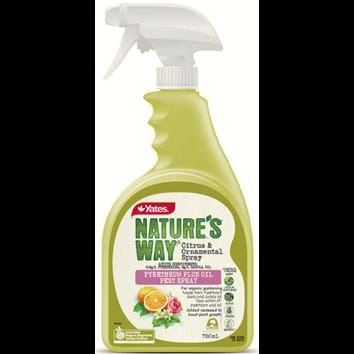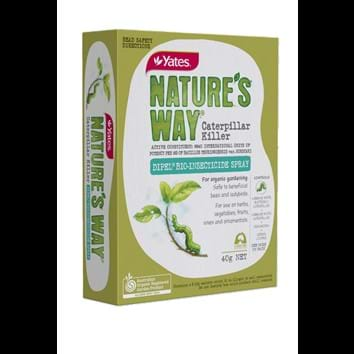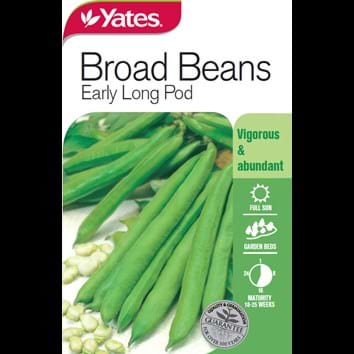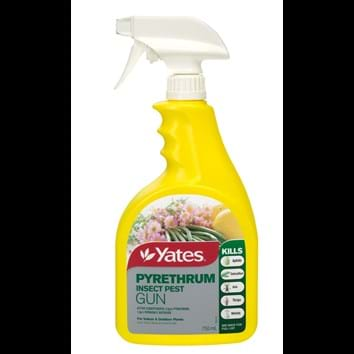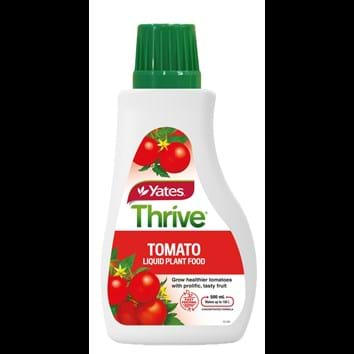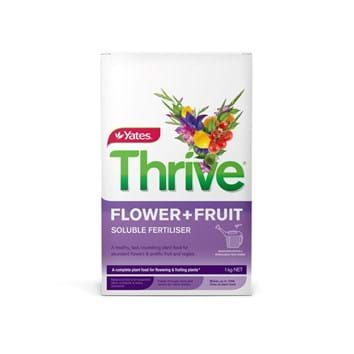Free Shipping When You Spend $50 or More
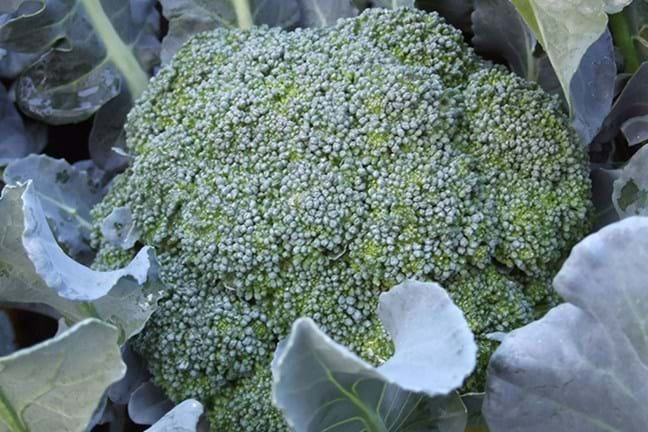
Brassica Vegies
- Keep feeding leafy brassica vegies like broccoli and cabbage with a nitrogen rich fertiliser like Yates Thrive Vegie & Herb Liquid Plant Food to promote healthy growth.
- Pick broccoli while the head is still tight and before the flowers open. Cut off the main head and smaller florets will develop around the cut stem over several weeks. For sprouting broccoli, pick the florets regularly to promote a longer harvest.
- The two main insect pests of brassica vegies are aphids and caterpillars. Aphids are small sap feeding insects that can be green, black or grey and are often present in their hundreds along stems, leaves and within the heads of broccoli and cauliflower. They remove important sugars and nutrients from plants, causing poor growth and a reduced harvest. Caterpillars are chewing pests that can rapidly destroy leaves and no one wants to find a caterpillar in their steamed broccoli! Control both aphids and caterpillars effectively with regular sprays of Yates Nature’s Way Citrus & Ornamental Spray. It’s a handy ready to use spray based on a combination of pyrethrin, a natural extract from the pyrethrum daisy, and vegetable oil and is approved for use in organic gardening.

Spinach
- Whether you’re growing delicious baby leaf or larger spinach varieties, individual leaves can be picked as you need them. Avoid picking any more than about 50% of leaves from any one spinach plant. The double benefits of regularly picking the leaves are that you can enjoy them at their most tender and it will also promote further leaves to grow.
- It takes of lot of energy to grow lots of lush green leaves, so it’s important to feed your spinach plants every week with a fast acting plant food like Yates Thrive Vegie & Herb Liquid Plant Food.
- Keep watch for caterpillars, which can rapidly devour spinach leaves. Sometimes you might not see the caterpillars themselves, as they’re experts in camouflage, just the damage they cause or their brown droppings. Spray spinach plants every 5–7 days with Yates Nature’s Way Caterpillar Killer (Dipel) to control caterpillars. It’s based on a naturally occurring soil bacterium and is approved for use in organic gardening.

Broad Beans
- Broad beans produce a heavy crop of protein-packed, nutty-flavoured beans. Yates 'Early Long Pod' broadbean seed can be sown during early winter in sub-tropical and tropical areas and throughout winter in temperate and cool climates.
- Feed plants each week with Yates Thrive Natural Vegie & Herb Concentrate. It's a complete liquid fertiliser that contains more than 50% natural ingredients, including fish, seaweed and blood and bone, and will promote healthy broad bean growth.
- Aphids are a common broad bean pest, which feast on sugary plant sap and cause leaves to curl and distort. To control aphids, spray plants each week with ready to use Yates Pyrethrum Insect Pest Gun.

Peas
- Whether you love crisp and crunchy snow peas, tender and sweet telephone peas or versatile sugar snap peas for either pods or peas, there's a pea for you!
- If you haven't sown pea seeds already, they can still be sown throughout Australia during winter. Climbing peas such as snow, sugar snap and telephone peas need a tall 2 m trellis to grow up or can be grown in pots with a tripod. Dwarf peas such as 'Greenfeast' and 'Earlicrop Massey' are great for garden beds, reaching around 50 cm tall.
- Protect young pea seedlings from hungry snails and slugs with a light sprinkling of new Yates Snail & Slug Bait.
- Once the seedlings are established, feed each week with potassium-rich Yates Thrive Flower & Fruit Soluble Fertiliser to promote lots of flowers and pea pods.

Tomatoes
- Tropical and sub-tropical gardeners can be enjoying tasty home grown tomatoes during winter. Keep feeding the plants with a specialised tomato fertiliser like Yates Thrive Tomato Liquid Plant Food, which contains the right balance of nutrients to promote healthy green leaf growth and lots of delicious tomatoes.
- Keep the soil or potting mix consistently moist, as lack of water can impact a plant’s ability to access calcium. Calcium deficiency can lead to a condition called blossom end rot developing, which appears as a black sunken spot on the end of tomato fruit. Regularly water tomato plants and applying a source of calcium like Yates Hydrangea Pinking Liquid Lime & Dolomite can also help prevent blossom end rot.
Grow your own seedlings
- There are many benefits of growing your own seedlings, including being able to economically grow as many seedlings as you need, when you need them. It's also immensely satisfying to watch a tiny seed develop into a young leafy seedling.
- Many vegie seeds, such as broccoli, cabbage and cauliflower, are best sown into punnets or trays (rather than sown direct into the soil), and then transplanted into their final home when they're around 5 cm tall.
- To grow your own seedlings, fill punnets or trays with Yates Specialty Potting Mix Cuttings & Seeds and firm down. Sow seed at the depth indicated on the seed packet.
- It's important to keep the mix consistently moist, but not wet, until the seeds have germinated and the seedlings are established. They're ready for transplanting once the roots are well developed.
Warm climate vegies
- Keep the soil or potting mix consistently moist for tomatoes, as any moisture stress can lead to a condition called blossom end rot, where the base of fruit develops a sunken black patch. Applications of liquid lime, such as Yates Hydrangea Pinking Liquid Lime & Dolomite can also help reduce blossom end rot, as lack of calcium can exacerbate the problem.
- Watch for powdery mildew on pumpkins and zucchinis. Initial symptoms are small powdery white spots on leaves, which can multiply and lead to leaves yellowing and dying. Control with regular sprays of Yates Mancozeb Plus.
- Continue sowing sweet corn seed to give you an ongoing supply of super juicy golden cobs. It's best to sow sweet corn in blocks, rather than rows, to aid pollination and kernel formation. Pick cobs once the fine silk emerging from the top of the cob has just browned.
Caterpillar control tip
- Caterpillars can decimate vegies during winter particularly brassicas like broccoli, cabbage, kale and cauliflower.
- Sometimes it's difficult to spot the caterpillars themselves, often all you'll see are holes in leaves or caterpillar droppings. To control caterpillars on vegies, spray the plants each week with Yates Success Ultra. Derived from a naturally occuring soil bacteria, it's a very effective way to control a wide range of caterpillars.


